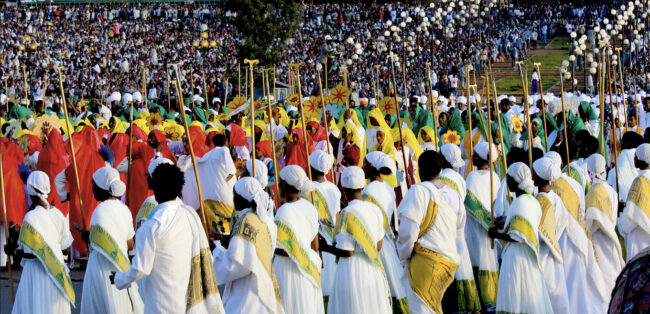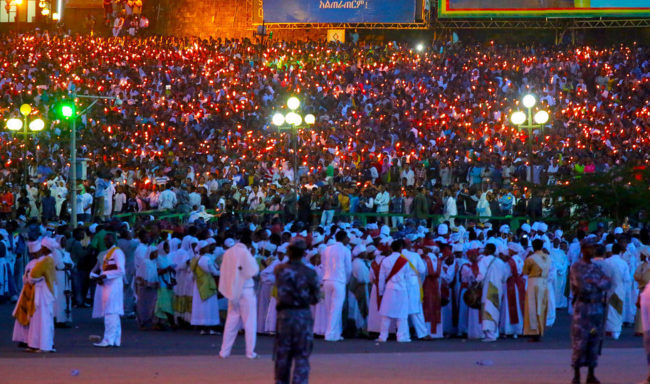THURSDAY, SEPTEMBER 28: Across Ethiopian Orthodox Christian and Eritrean Orthodox Christian communities, bonfires on the eve of Meskel remind families of an ancient story: the vivid dreams and forthcoming discovery of the true Cross by Queen Helena, in the fourth century. On Meskel, the faithful attend religious services, gather with family and feast together.
Did you know? Ethiopia is the only country in the world that celebrates the finding of the cross on a national level. (Watch a one-minute video of Meskel celebrations on YouTube. Or, try the video from Absolute Ethiopia.)
Ethiopia petitioned—and succeeded, in December of 2013—in requesting UNESCO to register the Meskel events in Addis Ababa as a cultural heritage experience, for its “ancient nature … color and significance … and the attraction it has for a growing number of tourists as well as the immense participation of the society.”
The traditional story tells that St. Helena instructed the people of Jerusalem to bring wood for a bonfire. After adding incense, smoke rose high into the sky then returned to the ground to touch the precise spot where the true Cross was located. Then, a part of the true Cross was brought to Ethiopia, where it lies at the mountain of Amba Geshen.
MESKEL: A UNIQUE CELEBRATION
The Meskel festival traces its roots back 1,600 years. Although it hasn’t been celebrated with the same level of enthusiasm in every century, Ethiopians certainly enjoy the festival today. Colorful processions begin in the early evening of Meskel eve; firewood is gathered by community members, and the bonfire site is sprinkled with fresh yellow daisies. Bonfires burn the night through, and when the flames at last begin to smolder, leftover ash is used to mark the foreheads of the faithful, in an act similar to that of Ash Wednesday.
Ethiopian honey wine, exotic spices and spicy hot peppers complement plates mounded with food, as family-honored recipes fill the table. In community settings, dozens of women gather to prepare food for hungry churchgoers, humming and singing traditional songs while they work. Homemade cheese, tomatoes and lentils are served with injera flatbread. (Make injera with this recipe, from the Cook’s Hideout.) Following food, the time-honored Ethiopian coffee ceremony commences.


